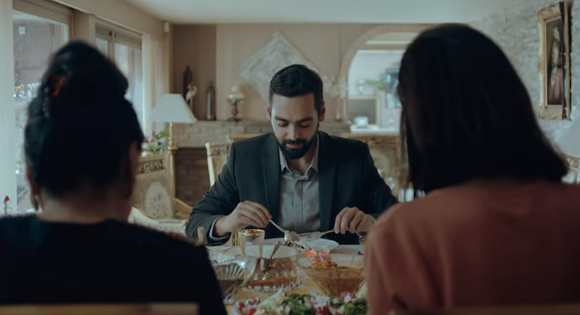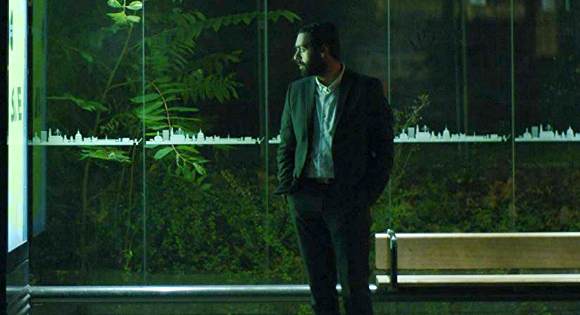The Charmer begins with a quiet but immediately intriguing bang. A man cavorts in bed with a woman. When they finish, he takes a shower. Then, when he comes out, one window of the apartment has been thrown open and his partner is nowhere to be found. What has happened will remain a mystery for much of the film and even at its end, much about this disappearance will remain unsolved. But answers are not the main concern of Milad Alami’s delicate thriller. Questions of belonging, identity, connection, home, and wanderlust are foremost on The Charmer’s mind.

Following this softly outrageous event, Esmail (Ardalan Esmaili) appears. An Iranian immigrant trying to make a go of it in Denmark, Esmail drifts and the film takes its time, allowing audiences to slowly pull the enigmatic pieces of his story together. He enters a relationship, one that ends rather quickly, with a plaintive accusation from the woman that he’s moving too fast. And though Esmail’s desperation only starts to become clear in languidly unraveling layers, the combination of these two opening images plainly sets the stage for something off-kilter, a threatening melancholy churning just below Esmail’s affable looks and calm demeanor.
Soon, Esmail’s routine becomes clear. He frequents a bar by himself, aiming to meet Danish women in hopes of finding romance with one who might help him to remain in the country. Some days, he also meets up with an immigration officer whom he has convinced he has a girlfriend she has yet to meet. Some nights, he shyly nods to a mysterious man who also frequents the bar (Lars Brygmann), acknowledging that, lately, their flirtatious efforts are bringing diminishing returns.

As more details of Esmail’s life begin to creep in, like his blue collar day job and his oddly distracted Skype calls with his family back home, Esmail meets Sara (Soho Rezanejad) in his regular haunt. Sara is also an Iranian immigrant, but there is tension from the moment they meet. Sara first notices Esmail chatting up her blonde friend and she sharply tells him to step off, slyly revealing that she knows exactly why men like him seek the company of single Danish women. But something soon softens in Sara and at their next encounter, she invites Esmail into her extended family of Iranian immigrants, first by simply inviting him to a party and then by welcoming him more intimately into the close-knit community, offering Esmail a sense of belonging he hasn’t known for quite some time.

Both Esmail’s dive into Sara’s world and his increasingly fraught relationship with that other enigmatic bar regular combine to create the film’s nearly unbearably suspenseful second half. Alami layers in details that further reveal Esmail to be a complicated and unreliable hero. At times it seems obvious to root for him to secure his course to citizenship, while at others, Esmail’s intentions seem at least slippery, if not downright dangerous. All along, Alami allows Esmail’s specific journey to subtly comment on a universal immigrant experience, the cruel disappointments and arbitrary roadblocks, the dashed hopes and necessarily constant positive thinking, without ever stating the themes too blatantly.

Ultimately, the film’s central conundrum is one of progression and direction: Is Esmail migrating toward something or is he running from something? Is he actually aiming to settle or is he merely afraid to stop moving? Esmail can’t seem to pinpoint the answers for himself and both inner and outer threats eventually catch up with him, swiftly derailing his plans and softly sending him several steps backward.
The Charmer’s final scenes devolve into something that feels close to tragedy, but instead of cataclysmic disaster, Esmail’s existential crisis unspools as quietly and privately as the film’s opening moment. It also feels less like failure than it does a sharp left turn down a new path. Something dies at both the film’s beginning and end, but a strange sort of scrappy, wistful hope feels as oddly close as the next move.
